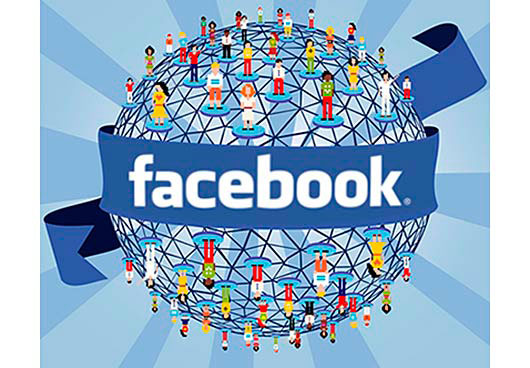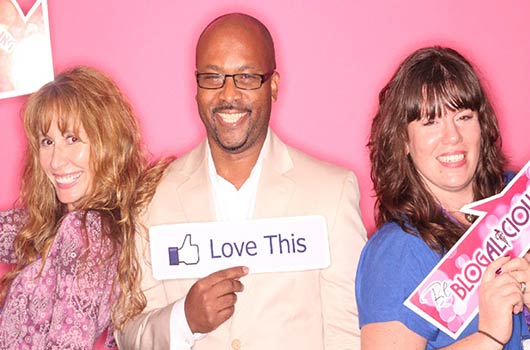
The picture seemed innocent enough: it was an attractive 14-year-old girl with her back to the camera, writing on the classroom whiteboard. But it was the text below the picture that caught cyberbullying educator Lissa Albert’s eye. It said, ‘look at that ass!’” Albert, who saw the posting on Facebook because she is “friends” with the 14-year-old boy who posted it, knew she had to make a call to her friend, the boy’s mother.
“I told her, ‘this is a tough phone call but I would rather you hear it from me than an irate father ringing at your doorbell,’” recalled Albert, who also calls herself a Digital Citizenship Educator. Her friend had a Facebook account, but she did not check it regularly.
Albert advised her to have a talk with her son about Internet rules, safety and respect.
“’This is an opening for you,” she recalled telling her friend who subsequently created her own Facebook page. “On an airplane the parent must put the oxygen mask on first in case of an emergency and then you put on your child’s. It is the same thing with Facebook. Educate yourself first. And then you can help your child on this very scary highway of information.”
INTERNET ETIQUETTE
With more than 650 million users worldwide, Facebook is the undisputed king of social networking. While the company requires its members to be at least 13 when they join, a study by Consumer Reports released last year found that about 7.5 million users in the U.S. are under the age of 13, and about 5 million are under the age of 10.
“Parents have to make that evaluation based on the maturity of their own child and the maturity of their peers,” said Stanley Holditch, spokesman for McAfee, the Internet security software company. “Parents need to make sure their kids are ready for this type of environment and it is primarily an adult environment.”
 Parents who allow their children to go on the site might feel more confident by explaining the pitfalls and dangers of sharing information on the Internet. It is essential to give your kids a primer on the rules to always follow, such as not accepting strangers on to your page, not posting information or pictures you wouldn’t want your grandmother to see and realizing that what goes on the Internet, stays on the Internet—forever. If you are getting bullied, “stop, block and tell.”
Parents who allow their children to go on the site might feel more confident by explaining the pitfalls and dangers of sharing information on the Internet. It is essential to give your kids a primer on the rules to always follow, such as not accepting strangers on to your page, not posting information or pictures you wouldn’t want your grandmother to see and realizing that what goes on the Internet, stays on the Internet—forever. If you are getting bullied, “stop, block and tell.”
And by all means require that they “friend” you and give you their passwords. “It is not snooping or monitoring. If your child were on the playground, you would be sitting there watching them play,” said Albert, who is based in Montreal, Canada, but travels for her educational outreach. “Facebook is a big cyber playground. At 13, your kids test the waters of independence. We need to give them some semblance of independence but you need to make rules.”
A big problem however, is that many adults are themselves ignorant of basic Internet safety guidelines. Consumer Reports found that 4.8 million people have used Facebook to say where they planned to travel on a certain day or announce where they live—great tip off for burglars or stalkers. The report found that 4.7 million “liked” a Facebook page about health conditions or treatments—details that an insurer might use against you.
Perhaps most ominously, even if you have restricted your information to be seen by friends only, a friend who is using a Facebook app could allow your data to be transferred to a third party without your knowledge. And 28 percent shared all, or almost all, of their wall posts with an audience wider than just their friends. At least 7 million households are reporting some form of hacking, harassment or threats on their Facebook page—up 30 percent from last year.
Albert recommends that parents have a friend check out their Facebook page to tell them what they can see. It is important to know what information you are allowing—or think you are allowing—to go out into the etherworld.
“Everything that a child posts will be permanent,” added Holditch. “They cannot assume that what they post will not get out to a larger audience. The golden rule is treat others as you would like to be treated.”
NOTHING IS PRIVATE
Even so, as Columbia University law professor Eben Moglen noted to Consumer Reports, the problem goes beyond the privacy settings. The truth is that all of your data is stored in Facebook’s memory bank for a long, long time and they have “uncontrolled access to everybody’s data, regardless of the so-called privacy settings.”
If want to see your kid’s page without their permission, you’re out of luck. Facebook cannot give access to the account or take any action on the account at a parent’s request. The site is “generally forbidden by privacy laws against giving unauthorized access to someone who is not an account holder—including users ages 13 and older,” according to Facebook.
McAfee has a social networking guide for parents and they recommend an online safety contract for parents and their children to discuss before going into the wilds of the Internet. Like talking to your kid about sex, frank discussions about Facebook and the Internet are an important part of parenting today. And just like having sex, there is an inherent risk in going on the online world—even with precautions in place.
“I would love to say I can offer concrete assurances, which is what parents want,” said Holditch. “Kids are growing up in an environment where they can’t shun the Internet and parents shouldn’t encourage that. It can be a wonderful learning tool. But it does come with inherent risk.”










